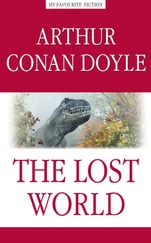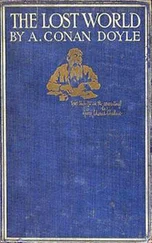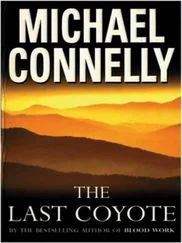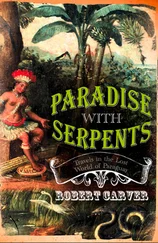Michael Crichton - The Lost World
Здесь есть возможность читать онлайн «Michael Crichton - The Lost World» весь текст электронной книги совершенно бесплатно (целиком полную версию без сокращений). В некоторых случаях можно слушать аудио, скачать через торрент в формате fb2 и присутствует краткое содержание. Жанр: Детская проза, на английском языке. Описание произведения, (предисловие) а так же отзывы посетителей доступны на портале библиотеки ЛибКат.
- Название:The Lost World
- Автор:
- Жанр:
- Год:неизвестен
- ISBN:нет данных
- Рейтинг книги:5 / 5. Голосов: 1
-
Избранное:Добавить в избранное
- Отзывы:
-
Ваша оценка:
- 100
- 1
- 2
- 3
- 4
- 5
The Lost World: краткое содержание, описание и аннотация
Предлагаем к чтению аннотацию, описание, краткое содержание или предисловие (зависит от того, что написал сам автор книги «The Lost World»). Если вы не нашли необходимую информацию о книге — напишите в комментариях, мы постараемся отыскать её.
The Lost World — читать онлайн бесплатно полную книгу (весь текст) целиком
Ниже представлен текст книги, разбитый по страницам. Система сохранения места последней прочитанной страницы, позволяет с удобством читать онлайн бесплатно книгу «The Lost World», без необходимости каждый раз заново искать на чём Вы остановились. Поставьте закладку, и сможете в любой момент перейти на страницу, на которой закончили чтение.
Интервал:
Закладка:
"Now, if this picture makes sense, where does natural selection act? Does it act on the body, enlarging the brain? Does it act on the developmental sequence, pushing the kids out early? Does it act on social behavior, provoking cooperation and child-caring? Or does it act everywhere all at once - on bodies, on development, and on social behavior?"
"Everywhere at once," Arby said.
"I think so," Malcolm said. "But there may also be parts of this story that happen automatically, the result of self-organization. For example, infants of all species have a characteristic appearance. Big eyes, big heads, small faces, uncoordinated movements. That's true of kids and puppies and baby birds. And it seems to provoke adults of all species to act tenderly toward them. In a sense, you might say infant appearance seems to self-organize adult behavior. And in our case, a good thing, too."
Thorne said, "What does that have to do with dinosaur extinction?"
"Self-organizing principles can act for better or worse. Just as self-organization can coordinate change, it can also lead a population into decline, and cause it to lose its edge. On this island, my hope is we'll see self-organizing adaptations in the behavior of real dinosaurs - and it'll tell us why they became extinct. In fact, I'm pretty sure we already know why the dinosaurs became extinct."
The radio clicked. "Bravo," Levine said, over the intercom. "I couldn't have put it better myself. But perhaps you better see what is happening out here. The parasaurs are doing something very interesting, Ian."
"What's that?"
"Come and look."
"Kids," Malcolm said, "you stay here and watch the monitors." He pressed the radio button. "Richard? We're on our way."
Parasaurs
Richard Levine gripped the railing of the high hide, and watched tensely. Directly ahead, coming into view over a low rise, he saw the magnificent head of a Parasaurolophus walkeri. The duck-billed hadrosaur's skull was three feet long, but it was made larger by a long horned crest that extended backward high in the air.
As the animal approached, Levine could see the green mottling on the head. He saw the long powerful neck, the heavy body with its light green underbelly. The parasaurolophus was twelve feet tall, and roughly the size of a large elephant. Its head was almost as high as the floor of the high hide. The animal moved steadily toward him, its footsteps thumping on the ground. Moments later, he saw a second head appear over the rise-then a third, and a fourth. The animals trumpeted, and walked in single file directly toward him.
Within moments, the lead animal was abreast of the hide. Levine held his breath as it passed. The animal stared at him, its large brown eye rolling to watch him. It licked its lips with a dark-purple tongue. The hide shook with its footsteps. And then it had passed, continuing on toward the jungle behind. Soon after, the second animal passed.
The third animal brushed against the structure, rocking it slightly. But the dinosaur did not seem to notice; it continued steadily on. So did the others. One by one, they disappeared, into the dense foliage behind the high hide. The earth ceased to vibrate. It was then that he saw the game trail, running past the high hide and into the jungle.
Levine sighed.
His body relaxed slowly. He picked up his binoculars and took a deep breath, calming himself His panic faded. He began to feel better.
And then he thought: What are they doing? Where are they going? Because, as he considered it, the behavior of the parasaurs seemed extremely strange. They had been in a defensive cluster while they fed, but in movement they had shifted to single file which broke the usual clumped herd pattern, and made every animal vulnerable to predation. Yet the behavior was clearly organized. Moving in single file must serve some purpose.
But what?
Now that they were within the jungle, the animals had begun making low trumpeting sounds of short duration. Again, he had the sense that this was some sort of vocalization to convey position. Perhaps for members to keep track of each other while they moved through the jungle, while they changed locations.
But why were they changing locations?
Where were they going? What were they doing?
He certainly couldn't tell here, standing up in the high hide. He hesitated, listening to them. Then, in a decisive moment, he swung his leg over the railing and climbed quickly down the scaffolding.
Heat
She felt heat, and wet. Something rough scraped along her face, like sandpaper. It happened again, this roughness on her cheek. Sarah Harding coughed. Something dripped on her neck. She smelled an odd, sweetish odor, like fermenting African beer. There was a deep hissing sound. Then the rough scraping again, starting at her neck, moving up her cheek.
Slowly, she opened her eyes and stared up into the face of a horse. The big, dull eye of the horse peered down at her, with soft eyelashes. The horse was licking her with its tongue. It was almost pleasant, she thought, almost reassuring. Lying on her back in the mud, with a horse -
It wasn't a horse.
The head was too narrow, she suddenly saw, the snout too tapered, the proportions all wrong. She turned to look and saw that it was a small head, leading to a surprisingly thick neck, and a heavy body -
She jumped up, scrambling to her knees. "Oh my God!"
Her sudden movement startled the big animal, which snorted in alarm, and moved slowly away. It walked a few steps down the muddy shore and then turned back, looking at her reproachfully.
But she could see it now: small head, thick neck, huge lumbering body, with a double row of pentagonal plates running along the crest of the back. A dragging tail, with spikes in it.
Harding blinked.
It couldn't be.
Confused and dazed, her brain fumbled for the name of this creature, and it came back to her, all the way from childhood.
Stegosaurus.
It was a God damn stegosaurus.
In her astonishment, her mind went back to the glaring white hospital room, when she had visited Ian Malcolm in his delirium, when he mumbled the names of several dinosaurs. She had always had her suspicions. But even now, confronted by a living stegosaur, her immediate reaction was that it must be some kind of a trick. Sarah squinted at the animal, looking for the seam in the costume, the mechanical joints beneath the skin. But the skin was seamless, and the animal moved in an integrated, organic way. The eyes blinked again, slowly. Then the stegosaurus turned away from her, moved to the water's edge, and lapped it with its large rough tongue.
The tongue was dark blue.
How could that be? Dark blue from venous blood? Was it coldblooded? No. This animal moved much too smoothly; it had the assurance - and indifference - of a warm-blooded creature. Lizards and reptiles always seemed to be paying attention to the temperature of their surroundings. This creature didn't behave that way at all. It stood in the shade, and lapped up the cold water, indifferent to it all.
She looked down at her shirt, saw the foamy spittle running down from her neck. It had drooled on her. She touched it with her fingers. It was warm.
It was warm-blooded, all right.
A stegosaurus.
She stared.
The stegosaurus's skin had a pebbled texture, but it was not scaly, like a reptile's. It was more like the skin of a rhino, she thought. Or of a warthog. Except it was entirely hairless, without the bristles of a pig.
The stegosaurus moved slowly. It had a peaceful, rather stupid air. And it probably was stupid, she thought, looking again at the head. The braincase was much smaller than that of a horse. Very small for the body weight.
She got to her feet, and groaned. Her body ached. Every limb and muscle was sore. Her legs trembled. She took a breath.
Читать дальшеИнтервал:
Закладка:
Похожие книги на «The Lost World»
Представляем Вашему вниманию похожие книги на «The Lost World» списком для выбора. Мы отобрали схожую по названию и смыслу литературу в надежде предоставить читателям больше вариантов отыскать новые, интересные, ещё непрочитанные произведения.
Обсуждение, отзывы о книге «The Lost World» и просто собственные мнения читателей. Оставьте ваши комментарии, напишите, что Вы думаете о произведении, его смысле или главных героях. Укажите что конкретно понравилось, а что нет, и почему Вы так считаете.









